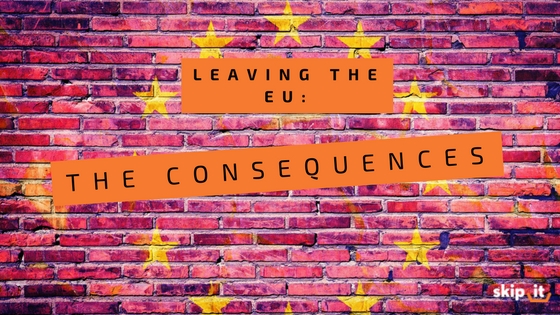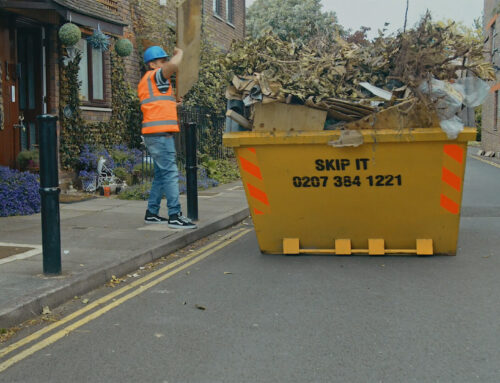Of all the issues that currently grip our country, Brexit is perhaps the single most contentious. And whilst the headlines dominate with storylines about turbid negotiations and political chaos, it’s important to remember that Brexit will genuinely impact on almost every department of businesses – including waste management.
There’s no way to know what’s going to happen to the waste management industry for sure when we depart from the EU, but there’s certainly a lot of possibility for both a recycling revolution and environmental disaster. Here are a few possible outcomes.
What might change
Recycling in waste clearance rates could reduce and landfill use increase
Nowadays, we recycle approximately 41 per cent of all our waste. We’ve managed to increase this rate by a staggering 30 per cent since 2001 and are currently making encouraging progress towards our goal of 50 per cent recycling rate by 2020.
As well as this, 80 per cent of the waste that in 2001 would have been sent to landfill is now diverted away – to be recycled or as one of a range of innovative measures to give waste new life. We’ve made significant and encouraging progress to reduce dependence on landfills, the big worry in the waste management industry at the moment, of course, is that both of these improvements came as a result of EU directives – or at least correlated with their introduction. While there’s no evidence to suggest the black and white legislation will be abandoned, there’s a risk that targets and directives set by an organisation to which we’re no longer beholden might start to slip down the government’s priority list.
Further policies and protections could be implemented by DEFRA and local government
Of course, it’s not all doom and gloom – and there’s every chance that the government could extend or increase environmental support and good waste management practices. We’ve heard encouraging signals about reducing plastic bottle waste from the Department for Environment, Food and Rural Affairs (DEFRA).
Set that against other plans to eliminate the use of diesel cars by 2040, and there’s plenty of evidence to suggest that a post-Brexit UK government could be as effective as or more effective than the EU in promoting a positive environmental agenda.
Nothing changes
If we’re honest, this is probably a bit more likely – at least in the short term, anyway. There are a few practical and logistical reasons for this.
Soft Brexit
There’s every chance that the jurisdiction of the European Court of Justice (ECJ) may continue in this country, in what many are referring to as a ‘Soft Brexit’, either as part of a temporary transitional arrangement or a semi-permanent settlement. In that situation, we’ll still be subject to the same environmental standards and regulations that we have for many years to come.
Existing waste clearance legislation is repealed into British law
The other option is, as the government are planning, the entire contingent of EU legislation becomes transplanted into British law. Whilst there’s every chance that laws could be meddled or adjusted in the long term – they’d have to go through Parliament and specifically change the law to do so. The government has not currently indicated that they have the time, votes, inclination or frankly, the energy for a protracted battle over environmental legislation in the Commons.
International treaties remain unchanged
Many environmental and energy protections in the UK today are mandated not by the ECJ, but instead by international treaties that have little if anything to do with the EU. Much of the waste management regulations we follow will continue to be governed by such treaties as The Basel Convention.
Whatever happens when the UK leaves the EU, we at Skip It will absolutely maintain our unfailingly high environmental standards. If you want to ensure that your waste collection needs are managed by people with standards like ours, then have a look through our waste management services, or contact us today.










Leave A Comment